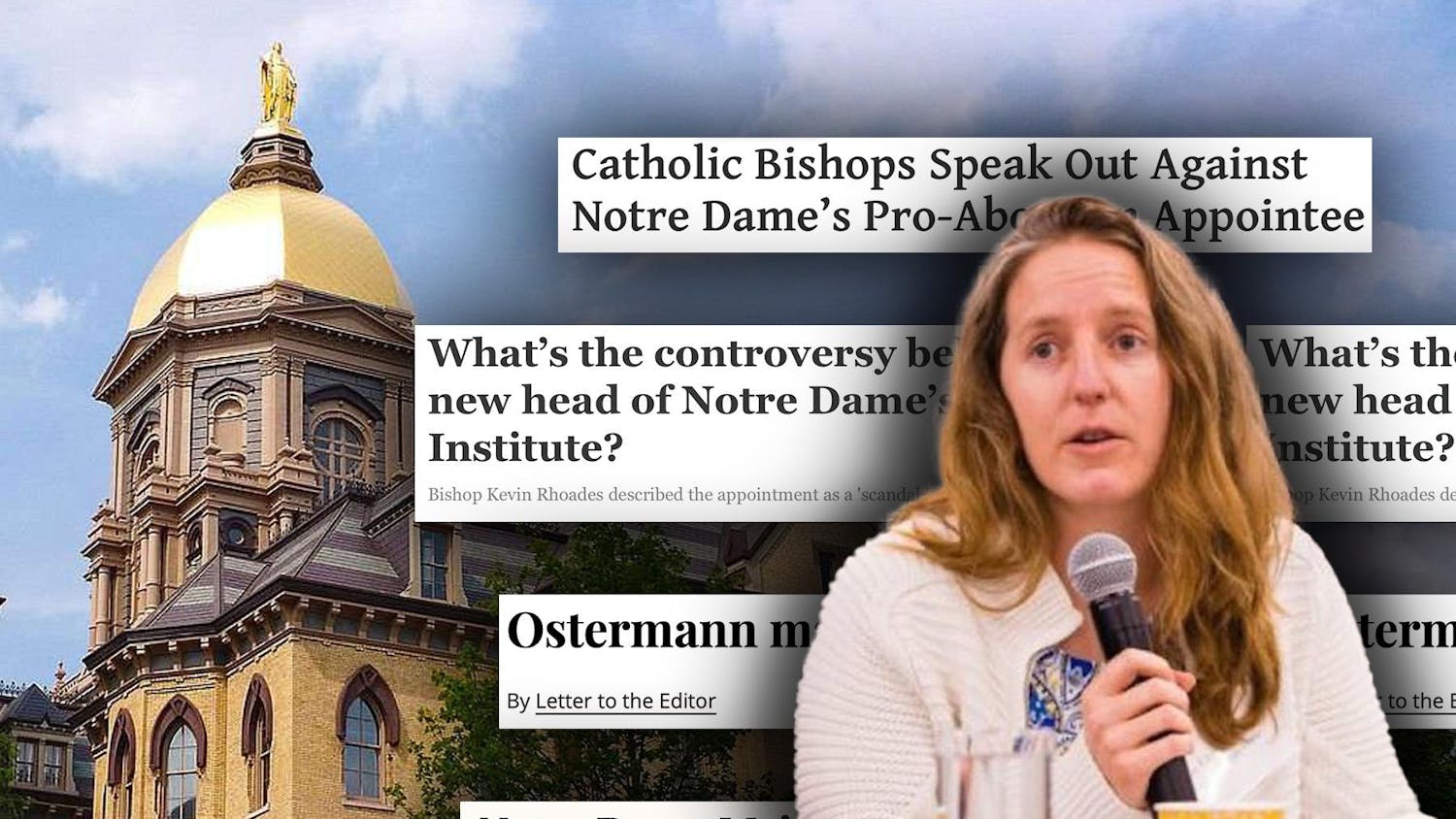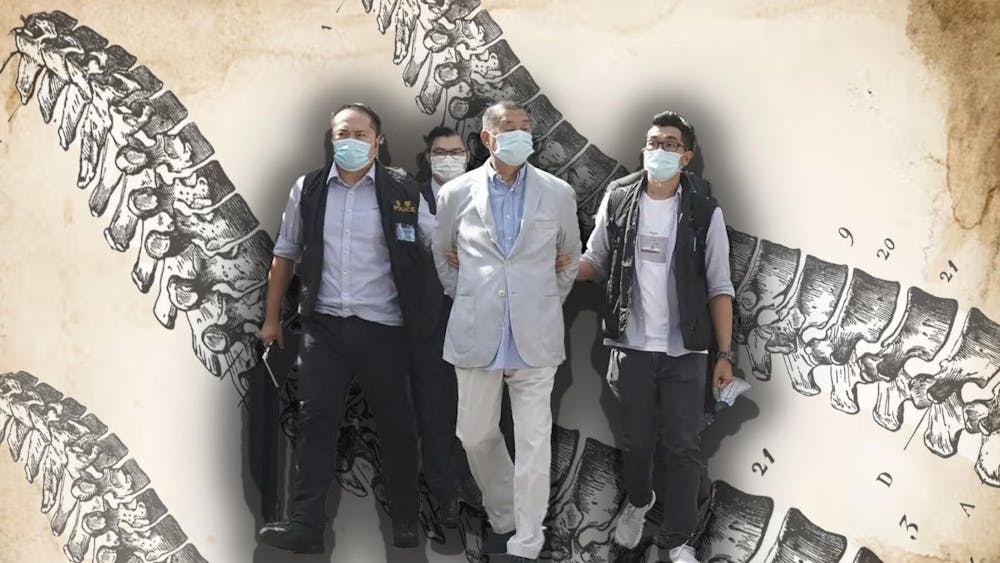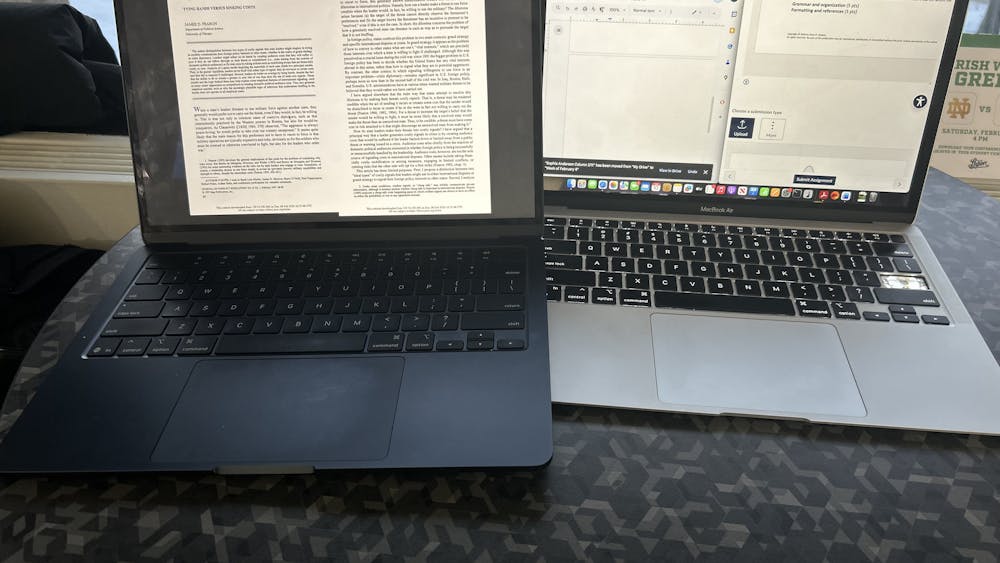Dear fellow white people,
It is no longer acceptable to sit back and rely on minorities to educate us on systematic racism. It is our job to actively engage in movements to support people of color and work to end oppression. We can no longer sit back and stay safe; it is time to take risks. We must stop fighting to retain white privilege and start fighting for true equality for black lives.
The Catholic Church believes every individual has human dignity because they are created in the likeness of God. No matter the color of a human’s skin, every human has dignity. Working to end racism and prejudice is not just a moral obligation, but an obligation fundamentally rooted in human dignity. Oppression is not something new and it is not something that can be destroyed by the oppressed alone. It can only be destroyed if the privileged oppressors can work to amplify the voices of the oppressed and end racial injustice.
In order to change systemic racism, we must first accept our own white privilege. White privilege is comprised of the benefits we experience based on our skin, benefits that go beyond what is commonly experienced by non-white people under the same social, political and economic circumstances. Once we accept our white privilege we can learn to see that we, collectively, are the oppressors. In order for us to have the determination and desire to shift the culture we must acknowledge the facts that 1) racism still exists and we do not live in a post-racial society, 2) white privilege exists and 3) every white individual, no matter their socioeconomic background, experiences white privilege. If we individually work to acknowledge these three things, we can begin the fight to end systematic racism from the ground up.
Yes, it is hard to admit that white privilege exits, admitting life was easier for you and that you were given resources and opportunities that would not necessarily have been given to a black peer. Yes, white privilege means your life has been easier due to systemic normalcies of the society we live in. The problem is that most white people equate admitting to white privilege to admitting they are racist. That is not the case and it is your duty as a white individual to seek out understanding of the distinction.
It is also our duty to be allies. It is hard to come to terms with the idea of better resources being granted to the privileged, however it can be easily described using the saying, “You have to pull yourself up by the bootstraps”. If someone lacks boots, it is hard to pull themselves up by the straps. That is what it is like to be underprivileged. You lack the resources you need to succeed and the privileged take those resources for granted.
I must stress, one cannot just title themselves an ally. The power to name allies is not in the hands of the majority, but in the hands of the minority. This is because many people call themselves allies but do not actually help the movement of the group they claim to be an ally for. Being an ally is not just saying you agree that racism is wrong. An ally takes actions to eliminate racism and help movements progress. As Opal Tometi said at the Black Lives Matter lecture on Monday, “[Allies] must have skin in the game."
We must use our white privilege to amplify the voices of the oppressed. We must use the platform of our skin to help incite change. True allies listen and understand that they do not get to dictate how marginalized groups react to their own marginalization. A key to being an ally is knowing that you do not face the same micro-aggressions, instances of racism and prejudice that the marginalized group you are trying to advocate for experiences.
As a white female, I experience few to no instances of racial injustice where I am the victim. However, I, as well as each of you, can work to empathize with the physical and emotional effects that oppression has on marginalized groups. Issues of racism and oppression will never be comfortable topics to discuss, but we must strive to enter into these uncomfortable conversations because dialogue is the only way to spark change.
There are critics who say the Black Lives Matter movement is wrong because God calls us to say that all lives matter. However, historically, black lives have not mattered as much as white lives, and therefore it is with intentionality that we say "Back Lives Matter." Frankly, all lives do not matter equally in a systematically racist society, and therefore the Black Lives Matter movement is necessary. We must understand that by saying "Black Lives Matter," we are not saying that white lives do not matter. We are saying white lives have always mattered and it is time for black lives to matter just as much as white lives do.
So, fellow white people, what exactly am I asking you to do? There are three simple things we must do to move forward: acknowledge our white privilege, empathize with the marginalized and oppressed and use our platform to promote social and institutional change.
It is not okay to stay in our comfort zones or be afraid that we will misspeak. Yes, as part of the majority this is an uncomfortable conversation to have, but nothing is ever going to change if no one enters that uncomfortable dialogue. We must know when to listen and when to join the fight. Not every space is meant for us to help and in certain cases, our involvement could hinder more than help.
I am asking you to start actively engaging in efforts to advocate for black lives. Black Americans often risk their lives to promote equality, so as a white person it is not okay to be “safe” with your words and actions. Take risks, piss off your misguided friends and stand up for what is right. This is not a comfortable fight and it will never become one. Do not just sit on the sidelines; actively engage in change.
Don’t know where to start? Start by researching the Black Lives Matter movement and its fundamental principles. Start by educating yourself on white privilege and what an impact it has on systematic racism. Just start. Start by joining the movement.
It's time to walk the walk
The views expressed in this column are those of the author and not necessarily those of The Observer.









